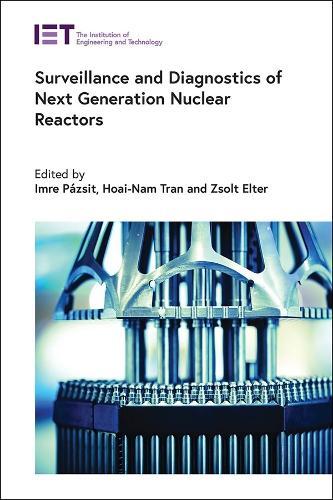Overview
Next generation nuclear reactors are expected to contribute to the future energy mix, forming part of the transition to an emission-free energy system. Diagnostics and monitoring are a necessary part of the design, development and operation of the new generation of nuclear power plants. Reactor diagnostics, particularly methods based on neutron noise analysis, have been used for traditional light and heavy water reactors, and offer benefits for early detection, identification and quantification of incipient failures. Diagnostic techniques will be useful for the next generation of power plants, including small, medium and small modular reactors (SMR), which use alternative coolant types. To expedite the planning of effective diagnostics, one needs knowledge of what problems might occur, and what methods are suitable for detecting and quantifying those problems. This book conveys a thorough study of the dynamic transfer properties of the main Gen-IV and SMR types; it also serves as a handbook for two-group power reactor noise theory for both traditional and fast systems. Chapters cover principles of reactor diagnostics and noise analysis for both thermal and fast systems, the structure of the core response in basic planned Gen-IV types and SMRs to some basic perturbations, a survey of dynamic core transfer calculational codes, zero power noise methods, instrumentation and control systems, and worldwide activities in design and planned diagnostics of SMRs. Surveillance and Diagnostics of Next Generation Nuclear Reactors is a concise and logically-structured reference for nuclear scientists, researchers and engineers involved in exploring new reactor concepts and developing designs for the coming generation of nuclear power plants.
Full Product Details
Author: Imre Pázsit (Professor, Chalmers University of Technology, Division of Subatomic, High Energy and Plasma Physics, Department of Physics, Göteborg, Sweden) ,
Hoai-Nam Tran (Professor, Phenikaa University, Phenikaa Institute for Advanced Study, Hanoi, Vietnam) ,
Zsolt Elter (Researcher, Uppsala University, Department of Physics and Astronomy, Sweden)
Publisher: Institution of Engineering and Technology
Imprint: Institution of Engineering and Technology
ISBN: 9781839537080
ISBN 10: 1839537086
Pages: 318
Publication Date: 01 December 2025
Audience:
College/higher education
,
Professional and scholarly
,
Tertiary & Higher Education
,
Professional & Vocational
Format: Hardback
Publisher's Status: Forthcoming
Availability: Not yet available

This item is yet to be released. You can pre-order this item and we will dispatch it to you upon its release.
Author Information
Imre Pázsit is a professor at the Division of Subatomic, High Energy and Plasma Physics, Department of Physics at Chalmers University of Technology, Sweden, and an adjunct professor at the Department of Nuclear Engineering & Radiological Sciences of the University of Michigan, Ann Arbor, USA. His research interests include fluctuations in neutron transport, reactor diagnostics and the theory of multiplicity in nuclear safeguards. He has published over 200 articles in international journals and, together with L. Pál, is the author of the book Neutron Fluctuations - A Treatise on the Physics of Branching Processes. He is a fellow of the American Nuclear Society, a member of the Royal Swedish Academy of Engineering Sciences and the Royal Society of the Arts and Sciences in Gothenburg, and an Honorary Doctor at the Budapest University of Technology and Economics. He is also the holder of the Leo Szilárd Medal of the Hungarian Nuclear Society, the Order of the Rising Sun from the Japanese government, and the E.P. Wigner Reactor Physicist Award and the Don Miller Award from the American Nuclear Society. Hoai-Nam Tran is a professor at the Institute for Advanced Study, Phenikaa University, Vietnam. Professor Tran's research focuses on burning strategies and fuelling schemes for various reactor types, including high-temperature gas reactors and pebble bed modular reactors, their neutron characteristics and calibration, and diagnostics. Past positions include Chalmers University of Technology, Nagoya University and Tokyo Institute of Technology, Japan. Zsolt Elter works as a reactor physicist in the Swedish nuclear industry and is part-time employed as a researcher at the Division of Applied Nuclear Physics at Uppsala University, Sweden, where he teaches reactor physics. He earned his PhD in nuclear engineering under the supervision of Prof. Imre Pázsit from Chalmers University of Technology. His professional interests include Monte Carlo-based neutronics and radiation shielding simulations, as well as deterministic lattice physics methods.



